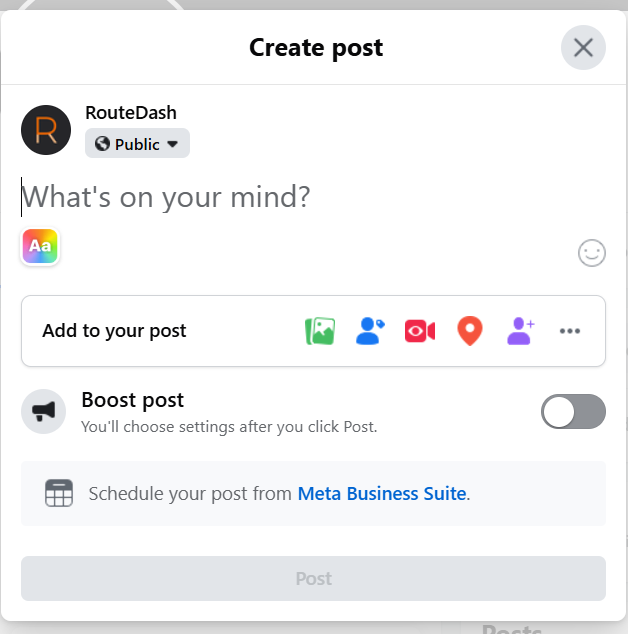What Are Cookies?
A Primer on the World of Cookies

Ah, the great cookie debate. We aren’t talking about chocolate chip vs. sugar cookies (the winner is chocolate chip hands down). No, we’re talking about cookies on the internet. You’ve seen them around. They mostly appear as an annoying pop-up on a site asking you to opt in or out of cookie tracking. But boy do they spark a lot of controversy. They’ve also been in the news a lot as of late because Google is essentially killing them off by 2022. What does this mean and how will this affect smaller businesses and marketing and advertising? Grab a cookie and get comfy because we’re going to explore the world of cookies.
What are cookies?
So, we’ve all encountered cookies while browsing the internet. But what are they? Cookies are small text files that live on your computer and are accessed by servers when you visit specific websites. A lot of cookies are there to remember who you are when you revisit a site. If you’ve ever used “Remember Me” or filled up a shopping cart and left the site to find it full when you come back you can thank cookies for that. Cookies let websites store information on your computer for a period of time and access that information again when you visit the website later.
That’s how first-party cookies work and they aren’t so bad. Their younger sibling, third-party cookies, are where it gets a little messier.
Third-party cookies.
Third-party cookies work like first-party cookies in that they are files that are put on your computer, only they are not put on your computer by the website you’re visiting. Instead, they’re placed there by another party working with the website you’re visiting. How is this different you ask? These cookies can be used on many different websites and can be used to do things like show you ads for things you’ve viewed on different websites. This information is used by data management teams who sell it to companies or brands for marketing campaigns. You’ve seen this before. Remember that time you were searching for pizza ovens? You left the site for whatever reason, but later you saw that exact same pizza oven you were drooling over in an ad on a completely different website. That’s remarketing and it’s a very common use of third-party cookies.
Personal information and third-party cookies.
Another use of third-party cookies is taking the data that the companies collect about you and creating a profile about you. The types of pages you view and what you do on the internet. They take this info and sell it to other companies. Then those companies piece that information together with data from other people and create a better picture of who they want to advertise to. For those companies it allows them to target potential customers better and avoid wasting time on people that are not likely to buy their product.
The problem with third-party cookies.
There are some potential issues with the use of cookies on the internet. The main issue many complain about is privacy. Or rather, a lack of privacy while surfing the web. It shouldn’t be too surprising to learn that while many people like personalization on websites and feeling like they aren’t only a number when it comes to advertising, they don’t like to be singled out. Let’s face it, it’s a bit creepy to have looked at pizza ovens, and then see ads for them all over the internet. It doesn’t feel as creepy if a website recognizes you’re a return visitor and welcomes you back inviting you to pick up where you left off.
Another issue is that some cookies can be altered by malicious users and data and information can be stolen. This data and info can then be used to commit fraudulent activity.
Despite these downsides, many still consider cookies to be among the greatest internet inventions.
The future of cookies.
Instead of doing away with them completely, many in the tech world are calling for alternatives to be found. Some browsers, Firefox, Safari, and others, have already made it a lot easier to opt out of using cookies. Google has recently introduced the idea of FLoC, or a cohort system that creates groups of users based on interest tracked by browsers, not advertisers. Other options are ways to measure conversions and performance without third-party cookies through a Conversion Measurement API and capped privacy budgets that limit the amount of information that can be gathered aggregated reporting, and trust tokens.
The future of cookies appears to be bleak. However, it’s only third-party cookies that are on the chopping block. First-party cookies will still be a part of our daily internet use. And that’s a good thing. If they were gone think of all the passwords and usernames you’d have to remember. Shopping carts that would be empty when you accidentally left the site. Settings you’d have to readjust for every visit. There are some uses of cookies that stir up controversy, and the tech world is trying to fix that. Cookies, at their heart, help to make our lives easier.
Need help giving up cookies? Contact us for a no-obligation consultation with our team of experts today!



